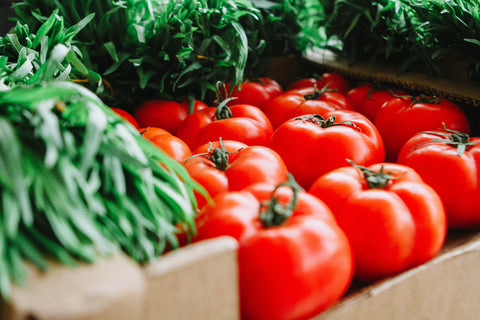Please note that this post is provided for informational purposes only and should not be taken as a substitute for medical advice. If you have concerns about cancer or any other health issues, speak to a qualified healthcare professional.
February is National Cancer Prevention Month. Dedicated to raising awareness of cancer risks, symptoms, prevention, and the importance of early detection, National Cancer Prevention Month is organized each February by the American Association for Cancer Research.
We all understand the importance of eating a healthy diet for overall health and living a long and full life. But did you know that the diet you eat can actually help to reduce your risk of cancer?
It is important to state that no single food can prevent you from getting cancer (or cure cancer if you are diagnosed with it), and that a well-balanced and varied diet is one of your best weapons against negative health outcomes overall. However, certain foods are thought to help fight cancer due to the presence of antioxidants.
What Are Antioxidants and Phytochemicals?

Antioxidants, which include vitamin C, beta-carotene, and lycopene (amongst others), are molecules that fight free radicals in the body. According to Healthline, free radicals perform an important function, but if they are out of balance with antioxidants in the body, they can cause a state called oxidative stress. This can pose serious risks to health and has been linked to heart disease, diabetes, and cancer. Antioxidants exist naturally in your body, but can also be found in many plant-based whole foods.
Phytochemicals are chemical compounds produced by plants. They are found in numerous plant-based foods such as fruits and vegetables, beans, nuts, seeds, and whole grains. Studies have shown that phytochemicals act as antioxidants, as well as helping the body to balance antioxidants and free radicals.
4 Cancer-Fighting Superfoods
A diet rich in plant-based, minimally processed whole foods is crucial to fighting off diseases, including cancer. Read on to learn about four nutritional powerhouses that can help to keep you healthy and may even help to prevent cancers. We have also included some ideas to help you incorporate these foods into your diet.
Broccoli

Broccoli is part of a family known as cruciferous vegetables, which also includes cauliflower, cabbage, and kale. It is rich in phytochemicals called glucosinolates, which produce protective enzymes including sulforaphane. Studies suggest that sulforaphane may reduce cancer risk.
Evidence also suggests that broccoli and other cruciferous vegetables may play a role in preventing breast, prostate, colorectal, and bladder cancers, amongst others.
Broccoli can be eaten raw or cooked. Eat it as a healthy snack, add some to your salad or to cooked dishes, or steam it and toss with a little olive oil as a delicious side dish.
Strawberries

There is an extensive and growing body of evidence showing the numerous health benefits of berries. As well as helping to protect against certain cancers, they may also play a role in preventing heart disease and memory decline.
Strawberries are rich in antioxidants and the phytochemical ellagic acid (EA). EA has been shown to have an array of benefits to health including reducing disease risk. In addition, one study showed that “Individual compounds in strawberries have demonstrated anticancer activity in several different experimental systems.”
Enjoy strawberries on their own as a snack, for dessert, or on your cereal as part of a healthy breakfast.
Tomatoes

The bright red color of tomatoes comes from a phytochemical called lycopene. Though more research is still needed, some studies have indicated that the high levels of lycopene found in tomatoes can have an impact on protection against prostate cancer.
Some evidence has also shown a positive impact on other cancers including lung, stomach, and breast cancers.
Interestingly, available data suggests that processed tomato products may be a better choice than whole tomatoes when it comes to maximizing the benefits of lycopene because cooking allows more of the substance to be absorbed into the body.
Walnuts

All nuts are highly nutritious. Walnuts, though, may offer additional cancer-fighting properties due to the presence of Omega-3 fatty acids and tocopherols, which may inhibit carcinogenesis and tumor growth.
Walnuts also contain phytosterols, which have been demonstrated to reduce the growth of cancer cells in various cancers. Though more evidence is needed, current clinical research is highly promising.
Bear in mind that nuts are very high in fat and calories, so pay attention to your portion sizes. Eat them as a snack, add them to salads or cooked dishes for a satisfying crunch, or sprinkle some over oatmeal for a delicious breakfast.
Read more

People take on extraordinary challenges for many reasons: to challenge their bodies and minds, to break records, to raise money for charity, or even just to see whether they can. While most of us w...

Variety is the spice of life, as the saying goes. And when it comes to exercise, variety and novelty are crucial to keeping things interesting and ensuring you keep up with your routine. Has your ...






Leave a comment
All comments are moderated before being published.
This site is protected by hCaptcha and the hCaptcha Privacy Policy and Terms of Service apply.